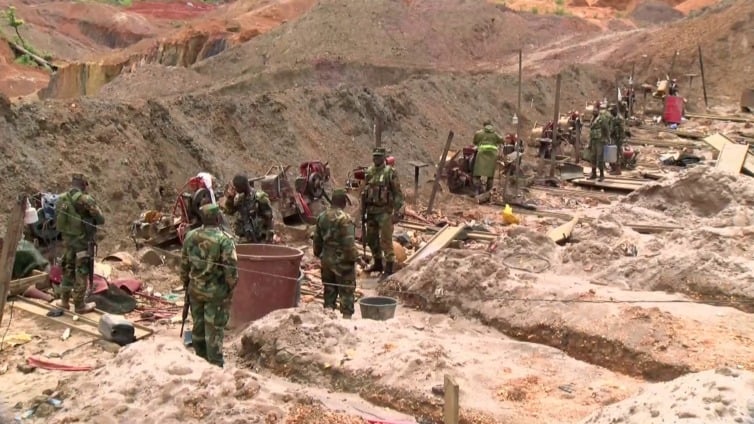The District Chief Executive (DCE) for Amansie South, Clement Opoku Gyamfi, recently emphasized the Ghanaian government’s position regarding mining practices, specifically drawing a clear distinction between lawful mining operations and the prevalent issue of illegal mining or “galamsey.” Speaking on Peace FM’s “Kokrokoo” morning show, Gyamfi articulated that while President Nana Addo Dankwa Akufo-Addo’s administration recognizes the significant economic contributions of legal mining to the nation’s GDP, it cannot support or condone illegal activities associated with galamsey, which he described as both unlawful and damaging. According to Gyamfi, any government aiming for sustainable development must stand against such illegal practices that undermine the rule of law and pose dangerous consequences for the environment and public health.
Gyamfi underlined that the importance of legal mining cannot be overstated, as it plays a vital role in enhancing Ghana’s economic landscape. The government’s ongoing efforts are geared towards fostering an environment where mining can flourish legally and ethically, generating revenue and employment opportunities for citizens. However, the DCE stressed that this positive impact does not extend to illegal mining operations that often lead to significant environmental degradation. These unregulated practices have detrimental effects on water bodies, forest reserves, and agricultural land, causing long-term harms that the government cannot overlook. Gyamfi reiterated that lawful mining is a necessity, and therefore, the government will always advocate for such practices while taking a firm stance against those that flout the law.
In addressing concerns surrounding the government’s approach to illegal mining, Gyamfi criticized individuals and groups who politicize the crisis for their own gain. He urged political entities to focus on collaborative solutions rather than leveraging the issue for political mileage, stating that the eradication of galamsey should transcend partisan politics. The ongoing challenge of illegal mining in Ghana necessitates a united front where government officials, political leaders, and communities work together to safeguard natural resources and firm up the rule of law. Thus, Gyamfi’s call for non-partisan discourse is pivotal for a comprehensive strategy that effectively addresses the galamsey epidemic.
Furthermore, the government is committed to taking decisive actions against illegal mining. Gyamfi highlighted “Operation Halt,” an initiative that has seen the deployment of over 100 soldiers to identified galamsey hotspots. This military intervention aims to mitigate the environmental damage frequently associated with illegal mining activities. By enforcing the laws against galamsey, the government hopes to restore affected ecosystems, protect water resources, and maintain public health. These steps reflect a broader strategy designed to ensure that mining in Ghana can occur in a manner that is both responsible and beneficial to society.
The emphasis on military involvement showcases the seriousness with which the government is tackling the illegal mining crisis. By involving the armed forces, the administration seeks to send a strong message about the illegality of galamsey and the potential consequences for those who engage in it. This intention to clamp down on galamsey is also indicative of a wider resolve to enhance governance in the sector. Gyamfi’s commentary indicates a commitment to tackling a practice that not only threatens the environment but also undermines legitimate mining enterprises and government revenue.
In conclusion, Clement Opoku Gyamfi’s statements reinforce the Ghanaian government’s dedication to legal mining while firmly opposing galamsey. The differentiation between lawful and illegal practices is critical for sustaining national development and environmental integrity. The combination of military action, public advocacy against politicization of the issue, and a clarion call for unity in addressing illegal mining reflects a comprehensive strategy aimed at eradicating galamsey in Ghana. The consequences of illegal mining on the economy, environment, and public health are too significant to ignore, prompting the government’s concentrated efforts to combat this issue. As the nation moves forward, the need for lawful mining practices and responsible governance remains a priority to ensure the sustainability of Ghana’s natural resources and economic future.


